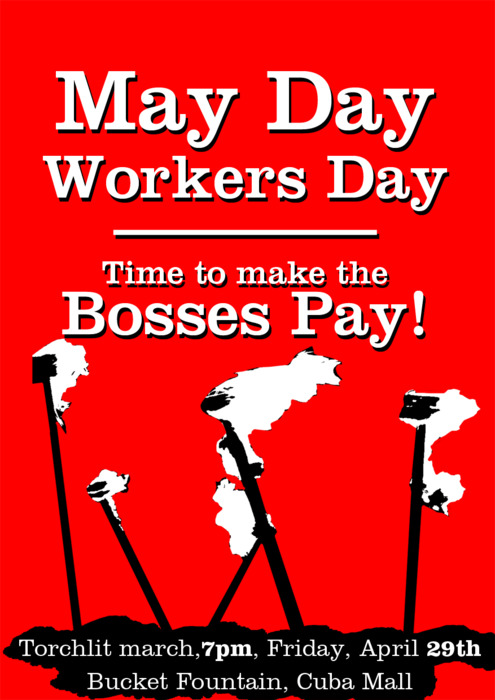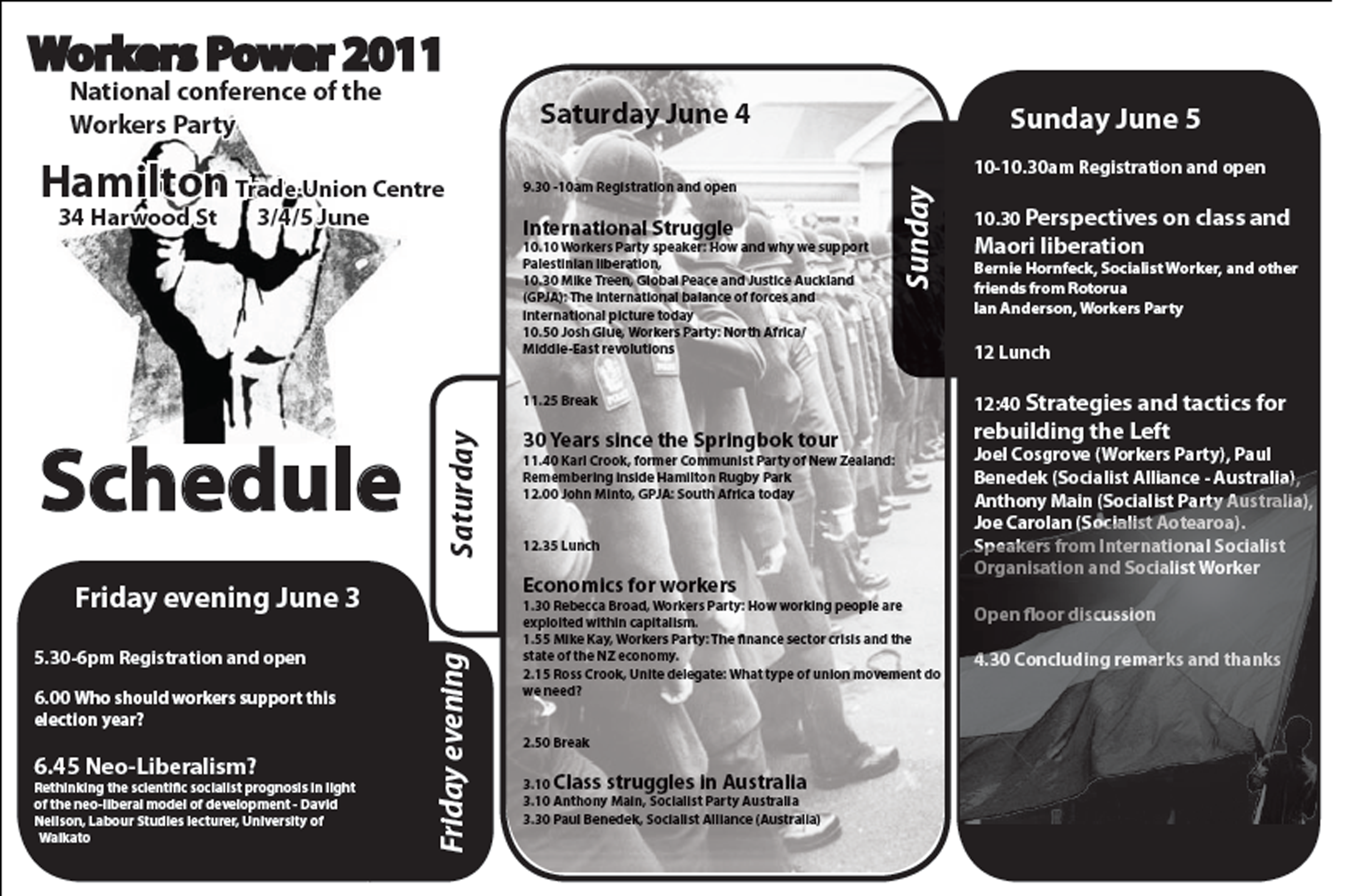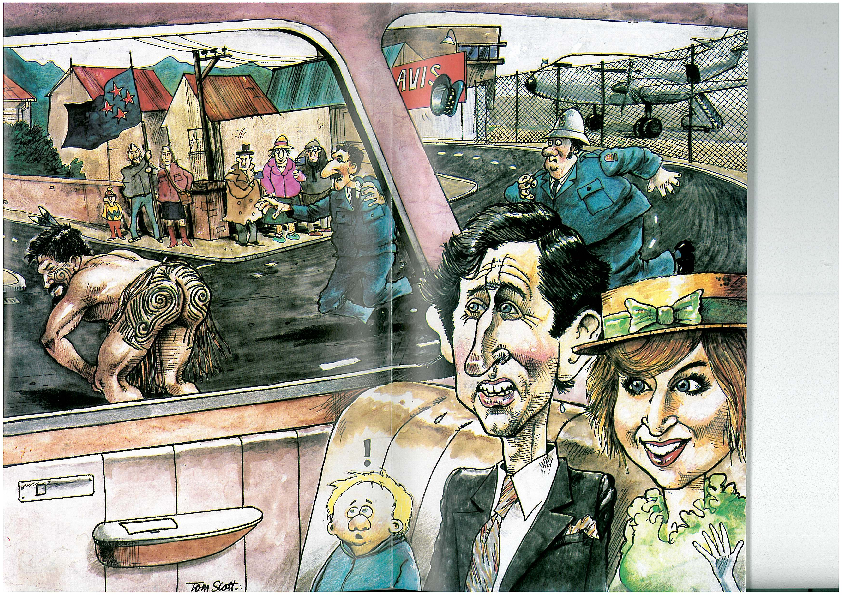 By Te Ringa Mangu (Dun) Mihaka & Diane Patricia Prince
By Te Ringa Mangu (Dun) Mihaka & Diane Patricia Prince
Ruatara Publications, 1984
Reviewed by Mike Kay, Workers Party Auckland and The Spark editorial board. This article first appeared in the April issue of The Spark.
As the media ramps up the hype around the Royal Wedding on April 29, now seems like a good time to revisit a period in New Zealand history when there was a republican movement willing to take militant action against the Monarchy.
During the 1983 Royal Tour of New Zealand by Prince Charles, Diana Princess of Wales and their infant son William, Dun Mihaka achieved international notoriety by performing a “whakapohane i te tou” (baring of the buttocks) in front of the Royal limousine as it exited Wellington Airport. He was immediately arrested following his protest. The brutality of the arrest (two police officers forced him to the ground) provoked his confidante and wife, Diane Prince, to attack the police, and she herself was taken into custody. This book is essentially the story of the resulting trial. The authors have left us with a superb example of how to present a political trial; they effectively put the whole system – police, courts, media, politicians and the Monarchy itself – on trial. Continue reading “Book Review "Whakapohane"”
Workers taking action in tough industrial relations environment
The following article by Jared Phillips will shortly be published in the April issue of The Spark.
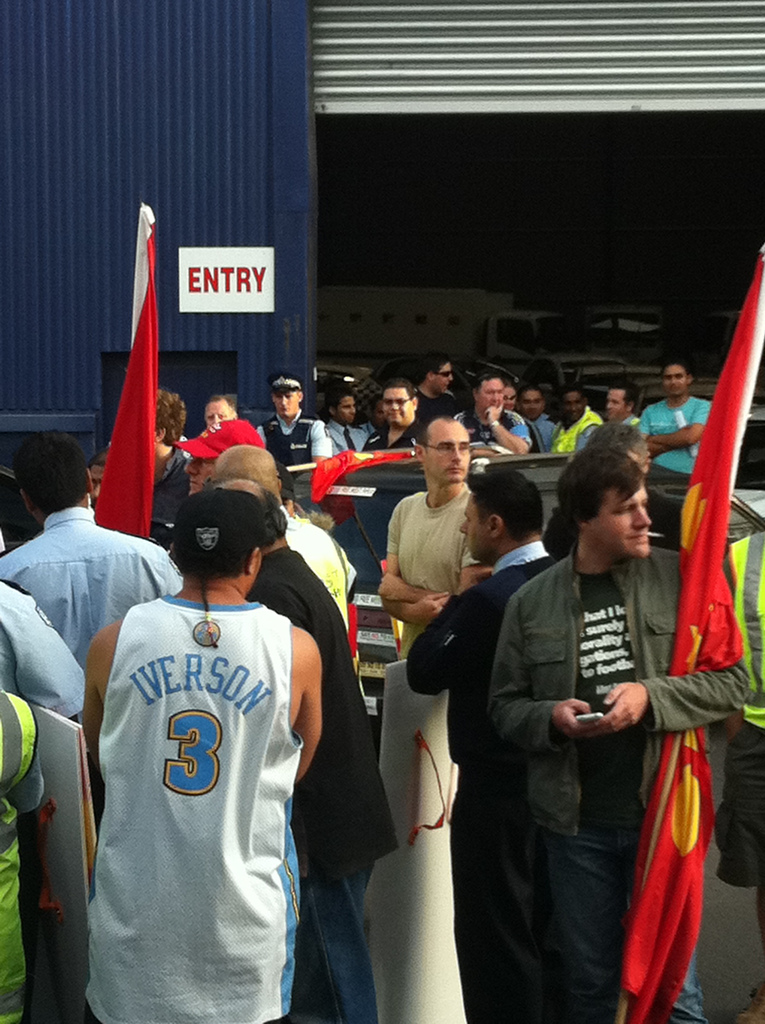
On April 1 the new anti-worker laws were introduced. The three main changes are increased restriction on the ability of union organisers to access workplaces, the introduction of 90-day probationary employment periods, and the ability for the employer to require a medical certificate for only one day’s sickness.
The fact that service sector employers (casino and security) have been so quick to lock out workers is evidence that the employing class is currently acting with a great deal of confidence.
In this environment of attacks on workers and their unions it is positive to see that some groups of workers have been taking the initiative to fight the employers.
Continue reading “Workers taking action in tough industrial relations environment”
Wellington: May Day march
Play review: Mates and Lovers
Adapted by Ronald Trifero Nelson from a script by Chris Brickell, review by Workers Party member James Froch
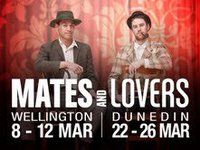 Having significantly evolved since it last showed at Bats in 2009, a new production of Mates and Lovers is back in Wellington as part of the second Asia-Pacific Out Games. This celebration of the modern gay identity is Ronald Nelson’s second adaptation of Chris Brickell’s well- known catalogue of men’s sometimes platonic and sometimes sexual relationships with other men.
Having significantly evolved since it last showed at Bats in 2009, a new production of Mates and Lovers is back in Wellington as part of the second Asia-Pacific Out Games. This celebration of the modern gay identity is Ronald Nelson’s second adaptation of Chris Brickell’s well- known catalogue of men’s sometimes platonic and sometimes sexual relationships with other men.
Having cut, extended and added some scenes—particularly enjoyable was the addition of the young Chris Brickell’s personal experiences during homosexual law reform –this production was more successful than its predecessor at transforming desperate individual stories separated by centuries, geography, ethnicity and class into a single narrative.
Much credit for the easy physical transitions between scenes is due to Taiaroa Royal’s clever choreography. Particularly creative was the transformation of the two lone actors (Paora Taurima and Simon Leary) into chorus girls, and their shirts into halter tops, during the musical numbers often used to move into a new scene. The playful gender transgressions added yet another layer of gaiety to the already quite gay piece of theatre. Continue reading “Play review: Mates and Lovers”
Industrial Tasks and Perspectives December 2010 / Industrial Report
The following article is an edited version of a report submitted to the Workers Party internal conference in January 2011 by its National Industrial officer Mike Kay.
General Outlook
The unemployment rate in the September 2010 year was virtually unchanged since the previous year, at 6.4%. Employment had increased by 1.8%, economic growth had been sluggish,and wage growth generally slow. (Although interestingly enough, the annual survey of CEAs by the Industrial Relations Centre at Victoria University found that for those agreements for which they could calculate an increase from June 2009 to June 2010, adult minimum wages in collectives went up by an “annualised” rate of 4.2 percent – the largest they have ever reported. This has been explained by pay rises kicking in for longer-term agreements negotiated prior to the recession.)
The Department of Labour’s Union Membership Report of March 2009 found a 3.9% increase in union membership on the previous year. Unions represented 17.9% of the total employed labour force, and 21.5% of wage/salary earners for that period. More women (59.9%) than men were union members. The most unionised sector was Health and Community Services, followed by Education; Government Administration and Defence; and Manufacturing.
There was a modest increase in work stoppages in the June 2010 year, compared to 2009’s historic low point. Twenty-nine work stoppages ended in the June 2010 year, with the estimated loss in wages and salaries $3.1 million. The number of employees involved (13,829) and the person-days of work lost (17,989) were both significantly up on the previous year. The greatest participation came from two sectors: Public administration and safety; and Health care and social assistance. The year was notable for strikes amongst white collar workers such as radiographers, secondary school teachers and staff in the Ministry of Justice.
Continue reading “Industrial Tasks and Perspectives December 2010 / Industrial Report”
Revisiting socialism and women's liberation
This article is by Kassie Hartendorp, organiser of the Wellington branch of the Workers Party. The article will be printed in three parts, in the new Women’s Liberation section of The Spark.
 Historically, one of the most controversial topics within Marxist theory is ‘the woman question’ which continues to create debate and disagreement within socialist politics. August Bebel defines the woman question as dealing “with the position that woman should hold in our social organism, and seeks to determine how she can best develop her powers and her abilities, in order to become a useful member of human society, endowed with equal rights and serving society according to her best capacity.” Because the demand for women’s rights is often seen to conflict with the priority of class struggle, some Marxists have refrained from tackling this topic, as it has not been uncommon for groups to split over disagreements on how to end women’s oppression. In this article we will review four writers; Frederick Engels, August Bebel, Clara Zetkin and Alexandra Kollontai and analyse what they have put forward in regards to women’s suffrage, marriage and the family, motherhood and love, and sexuality. This is only a small selection of the plethora of issues within the woman question, but due to word restraints, I will be just discussing these four areas. We choose here to use the term ‘women’s oppression’ rather than the more recently used ‘gender inequality’. While the terms are similar, the former is the historically specific description of the oppression and exploitation of women within the longer trajectory of capitalism. Continue reading “Revisiting socialism and women's liberation”
Historically, one of the most controversial topics within Marxist theory is ‘the woman question’ which continues to create debate and disagreement within socialist politics. August Bebel defines the woman question as dealing “with the position that woman should hold in our social organism, and seeks to determine how she can best develop her powers and her abilities, in order to become a useful member of human society, endowed with equal rights and serving society according to her best capacity.” Because the demand for women’s rights is often seen to conflict with the priority of class struggle, some Marxists have refrained from tackling this topic, as it has not been uncommon for groups to split over disagreements on how to end women’s oppression. In this article we will review four writers; Frederick Engels, August Bebel, Clara Zetkin and Alexandra Kollontai and analyse what they have put forward in regards to women’s suffrage, marriage and the family, motherhood and love, and sexuality. This is only a small selection of the plethora of issues within the woman question, but due to word restraints, I will be just discussing these four areas. We choose here to use the term ‘women’s oppression’ rather than the more recently used ‘gender inequality’. While the terms are similar, the former is the historically specific description of the oppression and exploitation of women within the longer trajectory of capitalism. Continue reading “Revisiting socialism and women's liberation”
Workers' Power 2011: National conference of the Workers Party
Major decisions of internal conference
Originally published in the March 2011 issue of The Spark.
At the end of January the Workers Party held its major internal meetings in Christchurch to guide the future strategy of the organisation.
Party structure changes
In terms of changing and developing party structures we did the following:
• Altered the leadership body and renamed it ‘Representative Committee’.
• Combined The Spark production team and the website committee.
• Combined the positions of national organiser and national secretary.
• Elected a discipline and disputes committee.
• Endorsed a new national recruitment officer position within the leadership body.
• Held membership criteria discussion. Membership categories to be fully decided by end of June 6, 2011.
• Held dues/finance discussion. National dues structure to be fully decided by end of June 6, 2011. Continue reading “Major decisions of internal conference”
Videos from Libya
[youtube=http://www.youtube.com/watch?v=d8XQMe8WTBk]
Liberated Libya rejects US intervention
[youtube=http://www.youtube.com/watch?v=w59Ru9jAqIY]
Benghazi Commune – Capital of Libyan revolution!
videos from The Real News Network.
Interview with Joe Carolan: Left alternative gains in Ireland’s general elections
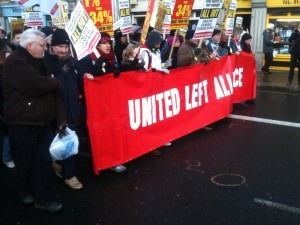 Hailing originally from Ireland where he was active in the Socialists Workers Party, Joe Carolan is a leading member of Socialist Aotearoa. Here he is interviewed by Ian Anderson (Wellington branch of Workers Party and The Spark editorial board).
Hailing originally from Ireland where he was active in the Socialists Workers Party, Joe Carolan is a leading member of Socialist Aotearoa. Here he is interviewed by Ian Anderson (Wellington branch of Workers Party and The Spark editorial board).
The Spark: Could you start by recapping what shifts happened in this year’s Irish General Election?
Joe: Well, to start with there was the complete electoral destruction of the favoured ruling class party Fianna Fail. They lost over 60 seats, including seats they’ve held since they first formed as a constitutional political party. In part this represents the death of nationalist illusions in the party, which had to do with their historical participation in the Civil War. The illusion of Fianna Fail as an upholder of national sovereignty was broken by their sell-out to the IMF and to neoliberalism in general.
Then you had the destruction of the Irish Green Party. The Green Party was exposed in two respects. Firstly they demonstrated that Green Parties are not automatically on the left, similar to Germany where the Greens helped to attack the working class and push through neoliberalism. They also sold out principles of their own, for example their craven surrender to Shell Oil, or the use of Shannon Airport by the US Military. So those two ruling parties lost a lot of ground, and good riddance.
There were significant gains by Fine Gael, the other major ruling class party. The split between the major ruling class parties does not go down left/right lines, and has more to do with the Civil War. Fine Gael came from the tradition of IRA leader Michael Collins, who accepted a free state with partition, while Fianna Fail is associated more with republicanism, the idea of a united Irish state.
Fine Gael is socially liberal, so many liberals treat it as a natural ally. The Labour Party has pursued a strategy of coalitions with Fine Gael.
Sinn Fein, a group broadly associated with left republicanism, has also gained seats – even, to their own surprise, in areas they have never previously held. They’ve grown from 4 seats to 13. The growth of Sinn Fein, the growth of the Irish Labour Party, and electoral support for the new United Left Alliance show a strong desire for change among the Irish working class.
The parties have not yet formed a coalition. Continue reading “Interview with Joe Carolan: Left alternative gains in Ireland’s general elections”

